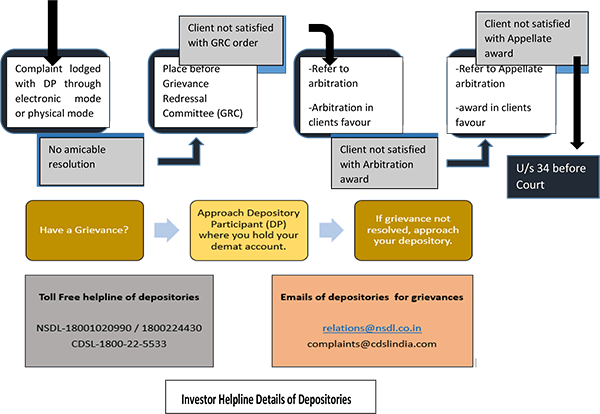Start Your Own Business With ZERO Investment

Start Your Entrepreneurial Journey Now!
What are mutual funds?
A mutual fund is a professionally managed investment fund that pools money from multiple investors to purchase a diversified portfolio of securities. These securities can include stocks, bonds, money market instruments, or a combination of these assets. Each investor in the mutual fund owns a portion of the overall fund, and the value of their investment increases or decreases based on the performance of the underlying securities in the fund. Mutual funds are a popular investment option for many people who are looking to invest in the stock market without the hassle of researching individual stocks.

Types of mutual funds
There are many different types of mutual funds, each with its own investment objective and strategy. Some of the most common types of mutual funds include:
Equity oriented funds
These funds invest primarily in equity shares of companies, with the aim of generating long-term capital appreciation. They can be further classified as large-cap, mid-cap, and small-cap funds, depending on the market capitalization of the companies they invest in.
Debt oriented funds
These funds invest primarily in fixed-income securities like bonds, debentures, money market instruments, etc. issued by both government & corporates. The primary aim of generating regular income for investors. They can be further classified as short-term, medium-term, and long-term funds, depending on the maturity period of the instruments they invest in.
Balanced funds
These funds invest in a mix of equity and debt instruments, with the aim of generating both capital appreciation and regular income. They can be further classified as conservative, moderate, and aggressive funds, depending on the proportion of equity and debt in their portfolio.
Index funds
These funds track a particular market index like the BSE Sensex or the Nifty 50, and invest in the same stocks in the same proportion as the index. The aim is to replicate the performance of the index, rather than outperform it.
Sector funds
Ø These funds invest in a particular sector of the economy, like banking, pharma, or technology, with the aim of generating higher returns by capitalizing on the growth potential of that sector.
Tax-saving funds
These funds, also known as Equity Linked Savings Schemes (ELSS), offer tax benefits to investors under Section 80C of the Income Tax Act, while also investing in equities with the aim of generating long-term capital appreciation.
Gold funds
These funds invest in gold ETFs (Exchange Traded Funds), which in turn invest in physical gold, with the aim of generating returns by tracking the price of gold.
Benefits of investing in mutual funds
Some of the benefits of investing in mutual funds include
1
Diversification
By investing in a mutual fund, you can gain exposure to a diversified portfolio of securities without having to purchase them individually.
2
Professional management
Mutual funds are managed by professional investment managers who have expertise in selecting securities and managing risk.
3
Affordability
Many mutual funds have low minimum investment requirements, making them accessible to a wide range of investors.
Challenges
While mutual funds can be a good investment option, there are some challenges that investors should be aware of. Here are some of the main challenges of investing in mutual funds:
Market Risks
Mutual funds are subject to market risks, which mean that the value of the investments in the fund can fluctuate depending on market conditions. This means that investors may experience losses if the market does not perform well.
Fund Manager Risks
Mutual fund investments are managed by fund managers, who make investment decisions on behalf of the investors. The performance of the fund is therefore largely dependent on the skills and expertise of the fund manager. If the fund manager underperforms, it can negatively impact the returns of the fund.
Expense Ratio
Mutual funds charge an expense ratio, which is the fee charged by the fund to cover its operating expenses. A high expense ratio can eat into the returns of the fund, and investors need to carefully consider the expense ratio before investing in a fund.
Lack of Control
Investors in mutual funds have limited control over the investment decisions made by the fund manager. They cannot decide which stocks or securities the fund invests in, and may not agree with the investment decisions made by the fund manager.
Exit Load
Mutual funds may also charge an exit load, which is a fee charged to investors who withdraw their investments before a certain period of time. This can be a deterrent for investors who need liquidity and want to withdraw their investments.
Summary
In conclusion, mutual funds can be a great option for investors who want exposure to a diversified portfolio of securities without the hassle of researching individual stocks. By understanding the different types of mutual funds, their benefits, and understanding risk involved in investing in them, you can make informed decisions about how to invest your money.
With Gainn, investing in mutual funds becomes extremely easy, super-fast, and highly convenient. Gainn offers top class digital platform to invest in almost all the categories and schemes available in Indian mutual fund industry. Gainn offers world class solutions to help mutual fund investors overcoming all the challenges of investing in mutual funds.




